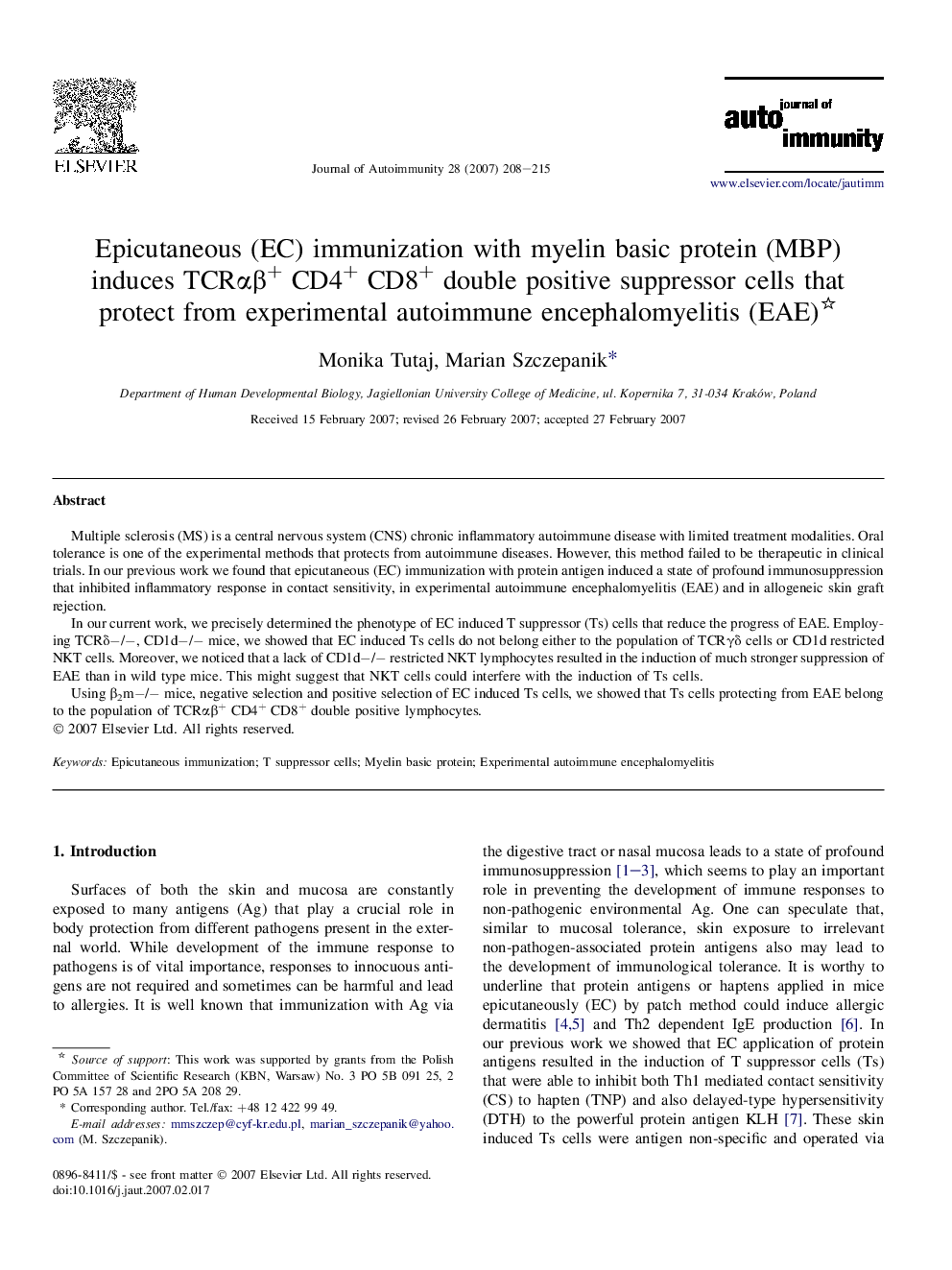| Article ID | Journal | Published Year | Pages | File Type |
|---|---|---|---|---|
| 3368492 | Journal of Autoimmunity | 2007 | 8 Pages |
Multiple sclerosis (MS) is a central nervous system (CNS) chronic inflammatory autoimmune disease with limited treatment modalities. Oral tolerance is one of the experimental methods that protects from autoimmune diseases. However, this method failed to be therapeutic in clinical trials. In our previous work we found that epicutaneous (EC) immunization with protein antigen induced a state of profound immunosuppression that inhibited inflammatory response in contact sensitivity, in experimental autoimmune encephalomyelitis (EAE) and in allogeneic skin graft rejection.In our current work, we precisely determined the phenotype of EC induced T suppressor (Ts) cells that reduce the progress of EAE. Employing TCRδ−/−, CD1d−/− mice, we showed that EC induced Ts cells do not belong either to the population of TCRγδ cells or CD1d restricted NKT cells. Moreover, we noticed that a lack of CD1d−/− restricted NKT lymphocytes resulted in the induction of much stronger suppression of EAE than in wild type mice. This might suggest that NKT cells could interfere with the induction of Ts cells.Using β2m−/− mice, negative selection and positive selection of EC induced Ts cells, we showed that Ts cells protecting from EAE belong to the population of TCRαβ+ CD4+ CD8+ double positive lymphocytes.
